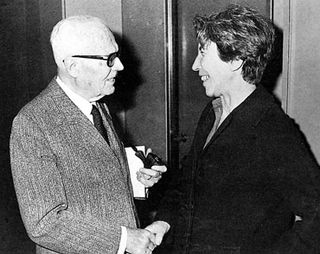A Quote by Natalia Ginzburg
My tidiness, and my untidiness, are full of regret and remorse and complex feelings.
Related Quotes
Sometimes when we're feeling sad, it's important just to feel the sadness. Like a snake shedding its skin, old feelings of remorse and regret and hurt and anger often have to come up in order to be released. On the other side we're a better person, capable of a happier life...who we are when we're no longer burdened by the buried feelings that weighed us down, or the self - defeating patterns that the pain produced.
If you did something in 1975 that you deeply regret and that you now can recognize as having been profoundly irresponsible, for example, the only way to be lifted out of deep regret and the pain over it is through atonement - through the kind of remorse that leads to genuine atonement, the making of amends, and forgiveness of self and others.
But feelings, no matter how strong or “ugly,” are not a part of who you are. They are the radio stations your mind listens to if you don’t give it something better to do. Feelings are fluid and dynamic; they change frequently. Feelings are something you HAVE, not something you ARE. Like physical beauty, a cold sore, or an opinion. Admitting you feel rage or terrible pain or regret or some old, rotten blame does not mean these feelings are part of who you are as a person. What these feelings mean is, you have to change your thinking to be free of them.
I regret that I was never an athlete. I regret there isn't time in life. I regret that so many of my friends have died. I regret that I was not brave at certain times in my life. I regret that I'm not beautiful. I regret that my conversation is largely with myself. I'm not part of the conversation of the world.
You can have lots of feelings and have the same feelings over and over again. It isn't the recognizable feelings that make so much difference. It is sensing the edge, the unclear, what you don't recognize, but it is there, the bodily discomfort that the problem makes, which has meaning; it has its own peculiar quality, implicity, it is complex, it has in it everything that relates to that problem, but not in a way you can say.

































